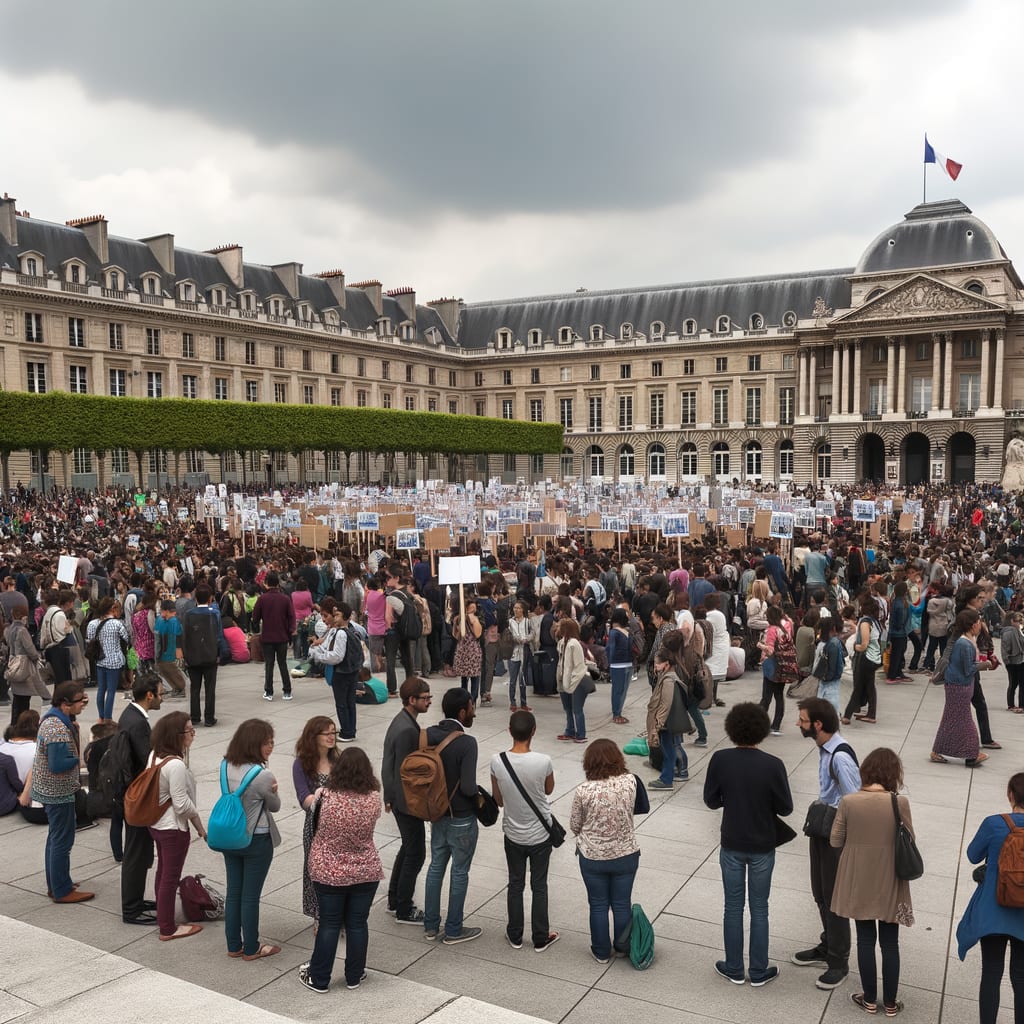Massive Protests Across France Against Proposed Budget Cuts and Public Services Reforms
In what's being described as one of the most significant strike days in recent years, approximately 800,000 people across France are expected to take to the streets, protesting against the proposed budget cuts, changes to public services, and wage issues. The protests come amid political crisis and increasing pressure on the new Prime Minister, Sébastien Lecornu, who is tasked with drafting a budget due to be sent to lawmakers by October 7.
Background and Context
Lecornu's appointment as Prime Minister comes at a time of widespread discontent among French citizens and trade unions. The proposed abolition of two public holidays, an unpopular move, was recently withdrawn after political outcry. However, the dematerialization of public services, which some argue has distanced the most vulnerable, remains a point of contention.
Key Developments
Trade unions have mobilized for the first time since June 2023 to influence the government's budgetary choices. The last major demonstration against the pension reform, which was adopted despite 14 days of mobilization, still leaves a strong imprint among employees. The protest comes as Lecornu continues his consultations, meeting with the PS and the RN before the day of action.
In parallel, there are calls for increased contributions from corporations and their leaders to help reduce the deficit. However, business circles have defended themselves, accusing policies of unfairly targeting them.
Implications and Reactions
The strikes are expected to disrupt schools, rail, and air transport across the country, with approximately 250 marches planned. Authorities are preparing for potential unrest, with 80,000 police officers deployed. The French public's reaction ranges from support for the strikes to concern over the potential for violent clashes.
The strikes are seen as a litmus test for Lecornu's leadership, signaling the magnitude of the challenges he faces in his new role. There are calls for him to reconsider the proposed budget cuts and act on wages, pensions, and public services.
Current Status
As France braces for the day of action, the crisis highlights the broader threats to the social and solidarity economy. The Court of Auditors report published on September 17 notes that budgetary restrictions risk exacerbating the trend of failures in this sector.
The current political climate in France reflects a complex interplay of economic, social, and political factors. As Lecornu races against time to draft a budget, the world watches to see how he navigates these turbulent times. Whether he will manage to strike a balance between fiscal responsibility and public sentiment remains to be seen.

